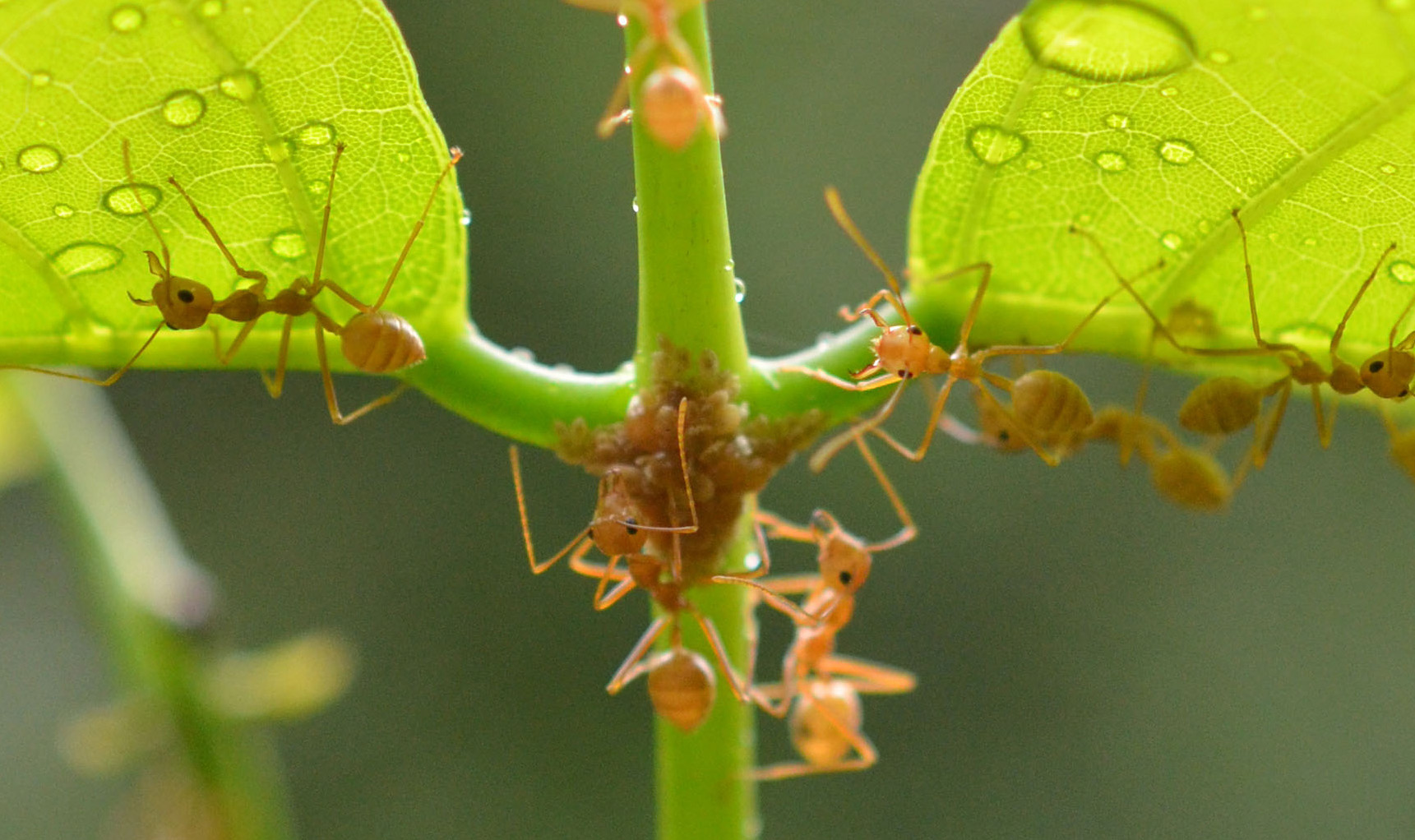
| |
| Home |
| Research |
| Teaching |
| People |
| Publications |
| Mentoring |
| Outreach |
| ROC Galapagos |
| Contact |
RESEARCH |
||
RESEARCH PROGRAM Exploitation of social hosts by parasitic insects Host and parasite species are in a coevolutionary arms race in which parasites exploit the host for their own fitness benefits, while the host evolves defense mechanisms. While behavioral host manipulation by parasites have been widely studied, less is known about the actual mechanisms underlying parasitic manipulation. To this end, we focus on understanding how parasites exploit phenotypic plasticity to reprogram their neurogenomic architecture, physiology and lifespan. 
_______________
Evolution and plasticity of sensory systems How do social animals process information from their physical and social environment to make decisions that enhance their survival and reproductive success? In animal societies where group members are constantly interacting, how do these interactions shape brain architecture and function? To answer these questions, we explore the impact of the social environment in both neurogenomic and physiological responses. In particular, we explore plasticity of sensory systems in Polistes wasps that form flexible dominance hierarchies. We also study how an arms race with closely-related social parasites influences investment of sensory brain regions. 
_______________ Adaptive responses in Social Insects The benefits of cooperation are essential in driving group formation. However, an individual can gain significant fitness benefits by acting selfishly at a substantial cost to others in the group. We use the wasp Mischocyttarus mexicanus to understand the effects of the physical and social environment on individual decisions of group formation and subsequent behavioral and reproductive tactics by colony members. We are also identifying how genomic, physiological and behavioral adaptations can facilitate local adaptation to distinct climatic pressures. 
_______________ Nestmate Recognition and Helping Behavior in Tropical Weaver Ants We explore kin and nestmate recognition and their effects on behavioral outcomes in the weaver ant Smaradigna oecophylla. We are currently working in several insular populations of located in the Solomon Islands. Based on these recognitions signals, the ants can remarkable choose to help others in distress or instead attack them. 
_______________
|
||
| Back to Home Page | ||